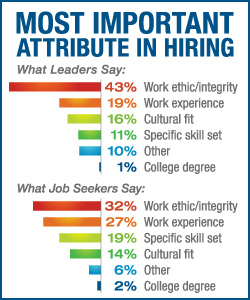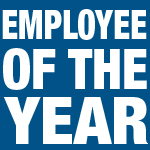 There is no doubt job interviews are stressful. Between the interview preparation, trying to wow the interviewer, and managing your employment situation, your plate is full. But with all you are trying to remember “to do” have you thought about what “not to do?” Here are five things to never say in an interview.
There is no doubt job interviews are stressful. Between the interview preparation, trying to wow the interviewer, and managing your employment situation, your plate is full. But with all you are trying to remember “to do” have you thought about what “not to do?” Here are five things to never say in an interview.
1. I don’t know how to use computers.
Maybe you don’t feel comfortable with computers but with technology taking hold of all facets of our life, it’s time to have some level of comfort with it. Even if you are looking for a job that may not require computer skills, you may have to use one for a specific task, for example filling out your timecard. Explain what you can do, whether it’s play games online, send email, or Skype with your family, share your experiences with computers. If you don’t have a computer at home visit your local library. They may have free classes that will help you get familiar with computers. You never want to lie about your abilities, and they may not be looking for a computer whiz, just someone who has familiarity with computers.
2. I bet I could learn how to do that.
Hiring employees is time intensive and costly. Employers want to be as certain as possible about your work ethic and ability to do the job and get up and running quickly. Be familiar with the job description and share transferable skills and related experiences that would make it quick and easy for you to perform the task required. Choose your words carefully and demonstrate your confidence.
3. I’m so busy.
Everyone has a life outside of work, but what’s most important during an interview is how well you would be able to perform the job at hand. Telling too much about your family responsibilities, hobbies, or other jobs may lead a prospective employer to believe that your ability to work will not be consistent.
4. What I really want to do is _____.
You’re here for a job, and the interviewer doesn’t want to hear your dream job is something different. Show your appreciation and enthusiasm for the opportunity. There may not be a direct career path for you, but focus on what you can learn and gain from the job opportunity.
5. I just couldn’t stand ______.
There isn’t anything to be gained from being negative. It’s fine to be honest about tasks you don’t enjoy but don’t exaggerate the situation. It’s good to let them know you understand there are good and not so good aspects to every job. In addition, it’s unprofessional to talk negatively about people and companies from your past. Focus on your future and what you’ve learned in the past, but keep it clean, positive, and brief.
Take time to prepare before your interview. Understanding the job description, the company information, and how your experiences and abilities make you right for the job will help keep your conversation on track. It’s natural to be nervous, but don’t rush your conversation. Choose your words carefully and remain focused, it’s okay to pause and collect your thoughts.
How do you ensure a successful interview conversation? Share your tips in the comments section below.





